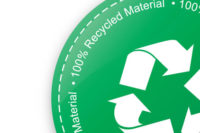The Flexible Packaging Association (FPA) and the Product Stewardship Institute (PSI) have agreed on eight legislative elements of an extended producer responsibility (EPR) bill for packaging and paper products (PPP).
This shared vision for a packaging EPR program that includes flexibles was developed through a year-long dialogue designed and facilitated by PSI. The FPA/PSI dialogue marks the first time in the U.S. that producers of flexible packaging, state and local government agencies, environmental groups, and recyclers have collaborated to develop a legislative framework for packaging EPR.
Flexible packaging has many attributes that make it environmentally preferable, but it has limited opportunities for collection and recycling at its end-of-life. FPA needed a platform to educate policy-makers and ensure that any extended producer responsibility legislation in the U.S. for packaging provided an on-ramp for the circularity of flexible packaging,” said Alison Keane, president and CEO of the FPA.
Municipalities face skyrocketing recycling costs to manage an ever more complex packaging waste stream over which they have no control,” said Scott Cassel, PSI’s Chief Executive Officer and Founder. “With this agreement, FPA member companies and PSI member governments, companies, and organizations have started down a path together to provide desperately needed fiscal relief for municipalities while fixing and expanding our national reuse and recycling system.”
Participants reached agreement on eight legislative elements, including the types of packaging to be included in legislation, entities from which packaging would be collected, and the definition of producers, who are legally responsible. Agreement was also reached on funding for collection, transportation and processing of packaging for reuse and recycling, public education, and government oversight. Participants agreed that funding should go towards system changes needed to recycle flexible packaging, as well as paying for litter abatement and prevention programs, and not to manage garbage and disposal systems. How to set performance targets and recycling goals were also outlined, as were financial incentives for producers to make more sustainable packaging, including the use of recycled content.
PSI and FPA representatives have also met with individual local and state government officials developing EPR for PPP bills. PSI will continue to facilitate these FPA state-by-state conversations, using these elements as a reference and discussion tool.


